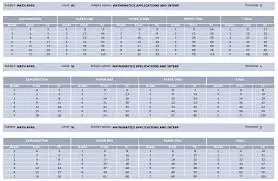

Results day is one of the most nerve-wracking and exciting days in an IB student's academic journey. After two years of rigorous coursework, extended essays, and preparation, you finally receive that crucial piece of paper that determines your next steps. Understanding what your IB results mean and knowing how to interpret them is essential for making informed decisions about your future.
This comprehensive guide will walk you through everything you need to know about IB results, from what you'll receive on results day to understanding your scores and exploring your options moving forward.
What You'll Receive on Results Day
When IB results are released, you'll receive several important documents through your school and the IB Candidate Results Service:
Your Results Statement
Your official results statement includes:
- Individual subject grades (scored 1-7 for each of your six subjects)
- Core component grades (Extended Essay and Theory of Knowledge)
- Total diploma score (out of 45 points)
- Diploma status (whether you've been awarded the full IB Diploma)
- Grade boundaries for each subject (showing the marks needed for each grade)
Your results will look like:
.webp)
Additional Information
- Detailed subject breakdowns showing your performance in different components
- Internal Assessment (IA) scores and how they contributed to your final grade
- CAS completion status (Creativity, Activity, Service)
- Any special considerations or circumstances that may have affected your results
Understanding the IB Grading System
Subject Grades (1-7 Scale)
Each of your six IB subjects is graded on a scale of 1 to 7:
- Grade 7: Exceptional performance (achieved by 7.9% of students globally)
- Grade 6: Very good performance (achieved by 20.3% of students)
- Grade 5: Good performance (achieved by 27.1% of students)
- Grade 4: Satisfactory performance (achieved by 24.0% of students)
- Grade 3: Mediocre performance (achieved by 12.8% of students)
- Grade 2: Poor performance (achieved by 4.8% of students)
- Grade 1: Very poor performance (achieved by 0.8% of students)
Core Component Points (0-3 Additional Points)
The Extended Essay (EE) and Theory of Knowledge (TOK) are graded A-E, and together they can contribute up to 3 additional points to your total score:
Important: Receiving an 'E' in either TOK or EE results in a failing condition, meaning you won't receive the IB Diploma.
Total Diploma Score
Your total score is calculated by adding:
- Six subject grades (maximum 42 points)
- Core component points (maximum 3 points)
- Total possible score: 45 points
For a more complete overview of how the IB is graded, please check out our blog on how you IB score is calculated
What Makes a Good IB Score?
Global Averages and Benchmarks
- Global average (2024): 30.3 points out of 45
- Good score: 30+ points (places you in the 50th percentile or higher)
- Excellent score: 38+ points (competitive for top universities)
- Outstanding score: 40+ points (achieved by only 11.5% of students worldwide)
Check out the scores distribution from the last few years released by the IBO
.webp)
Pass Requirements
To receive the IB Diploma, you must:
- Score at least 24 points total
- Achieve at least grade 4 in each subject (with some exceptions)
- Complete all core components (EE, TOK, and CAS)
- Meet attendance and academic honesty requirements
University Entry Requirements
Different universities have varying IB score requirements:
- Top UK universities (Oxford, Cambridge): 38-42 points
- US Ivy League schools: 39-42 points
- Good universities globally: 32-36 points
- Most universities: 28-32 points
Common Situations After Results Day
Scenario 1: You Didn't Pass the IB Diploma
If you didn't achieve the minimum requirements for the IB Diploma, don't panic. Here are your options:
Immediate Steps:
- Meet with your DP Coordinator and parents/guardians to discuss your situation
- Explore alternative pathways that don't require the full IB Diploma
- Consider retaking exams in the November or May session (though your school isn't obligated to support this)
- Investigate remarking if you're close to grade boundaries
Available Options:
- Move forward with individual IB certificates instead of the full diploma
- Gap year to retake exams at a different institution
- Apply to universities that accept IB certificates or have alternative entry routes
- Consider foundation courses or alternative qualifications
Scenario 2: You Passed But Didn't Meet University Requirements
This is a common situation that many students face. Here's what to do:
Immediate Actions:
- Contact your university directly - many institutions are flexible and may still offer you a place
- Check if you can be placed on a waiting list for your preferred course
- Explore alternative courses at the same university
- Research clearing or similar processes in your country's education system
Consider Remarking If:
- You're within 1-2 points of your required score
- You have strong grounds to believe a subject was undermarked
- The potential benefits outweigh the costs and risks
Scenario 3: You Met Requirements But Feel Disappointed
It's natural to feel disappointed if your results don't match your expectations, even if you've met your university requirements.
Remember:
- IB scores don't define you - they're just one measure of academic achievement
- Your worth extends beyond grades - consider your personal growth, skills developed, and experiences gained
- Focus on the future - what matters most is how you use your education moving forward
- Seek support - talk to family, friends, counselors, or teachers about your feelings
Understanding Enquiry Upon Results (EUR) - Remarking
If you believe your results don't accurately reflect your performance, you can request an Enquiry Upon Results through your school.
Important Considerations Before Remarking:
- Grades can go down as well as up during remarking
- Fees are charged regardless of the outcome
- Success rates vary by subject and circumstances
- Time is limited - universities may not wait for remarking results
You should only consider remarking if you near the edge of the grade boundary to go up a grade
Types of EUR Available:
- Category 1 Remark: Re-examination of your externally assessed work
- Category 1 Report: Detailed examiner feedback on the remark
- Category 2B Return: Return of your original exam materials
When to Consider Remarking:
- You're 1-2 points away from your university requirement
- You have strong evidence suggesting undermarking
- The subject is known to have variable marking standards
- You're close to grade boundaries in specific subjects
Grade Boundaries and What They Mean
Grade boundaries are the minimum marks required to achieve each grade (1-7) in each subject. These boundaries:
- Change annually based on the difficulty of the exam and overall student performance
- Vary by subject and level (HL vs SL)
- Are set after each exam session to ensure fair and consistent grading
- Are available in your candidate portal after results are released
Understanding grade boundaries helps you:
- Assess how close you were to the next grade
- Make informed decisions about remarking
- Understand the relative difficulty of your exam session
Grade boundaries will show you the max and min score for each grade for each subject

Moving Forward: Next Steps After Results
If You're Happy with Your Results:
- Confirm your university place if you haven't already
- Prepare for the next phase of your education
- Celebrate your achievement - you've completed one of the world's most challenging academic programs
- Stay connected with your IB experience as you transition to university
If You Need to Adjust Your Plans:
- Explore alternative pathways to your desired career or field of study
- Consider gap year options if you're planning to retake exams
- Research different universities that might accept your current scores
- Speak with career counselors about alternative routes to your goals
Remember:
- Your IB experience has value beyond just the final scores
- Universities recognize the skills and qualities IB students develop
- Many successful people have taken non-linear paths to their goals
- This is just one step in your educational journey
Frequently Asked Questions
Can I retake IB exams?
Yes, you can retake IB exams in the November session, but your school isn't obligated to support you. You may need to find an alternative school or educational center.
How long is the remarking process?
The remarking process typically takes 4-6 weeks, which may be too late for some university application deadlines.
What if I need my results for university applications?
If you're applying to university, make sure to understand their policies on late results submissions and whether they'll wait for remarking outcomes.
Are there any subjects that are easier to remark?
Some subjects with more subjective marking (like languages and humanities) may have slightly higher remark success rates, but this varies by exam session.
What support is available after results?
Most schools provide post-results counseling and support. Don't hesitate to reach out to your DP Coordinator, teachers, or school counselors for guidance.
Final Thoughts
Receiving your IB results is a significant milestone, but it's important to remember that these scores are just one part of your educational journey. The IB Diploma Programme has equipped you with critical thinking skills, cultural awareness, and academic rigor that will serve you well regardless of your specific scores.
Whether you're celebrating excellent results or facing disappointment, focus on the skills you've developed, the knowledge you've gained, and the resilience you've built over the past two years. These qualities will be far more valuable in your future endeavors than any single set of grades.
Remember that success comes in many forms, and there are multiple pathways to achieving your goals. Your IB experience has prepared you for whatever comes next, and with the right mindset and planning, you can turn any result into a stepping stone toward your future success.
If you need additional support or guidance, don't hesitate to reach out to your school's counseling services, your DP Coordinator, or educational professionals who can help you navigate your next steps. Good luck with whatever path you choose to take!





